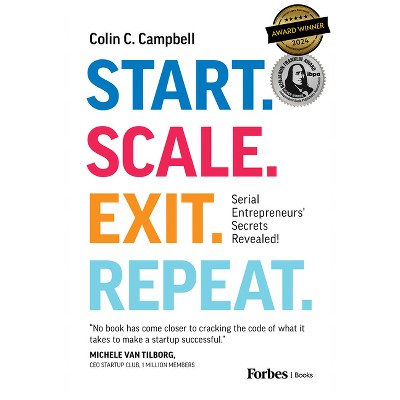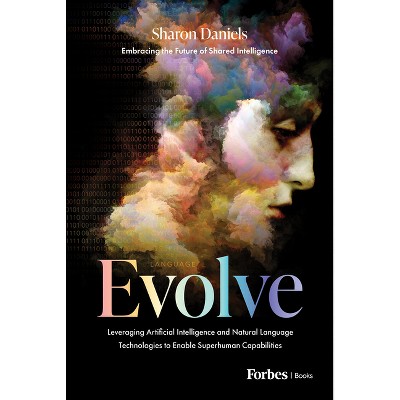Sponsored

Workforce 4.0 - by Gerard Szatvanyi (Hardcover)
In Stock
Sponsored
About this item
Highlights
- What's coming next for today's workforce, and the companies behind them?
- Author(s): Gerard Szatvanyi
- 168 Pages
- Business + Money Management, Industries
Description
About the Book
As AI becomes more integrated into our lives, it's paramount for companies to consider best practices and strategize for the future. That's exactly what Szatvanyi lays out in his book, as he offers examples and insight into this unprecedented reality. Throughout the chapters, he guides readers along an exciting journey that maps out how far we've come -- and how to approach what's next.
In the pages, Szatvanyi touches on timely topics, including how to approach hybrid work, re-think the office space, and manage remote teams. He discusses ways for companies to ensure their values align with the places where they operate, along with understanding cultural norms in those regions. He tackles key issues that require mindfulness, including ethical guidelines for AI and the risks related to bias in new technologies. At every step, readers will be invited to reimagine what their organizations could do, the niches where they could operate, and the new markets that could be tapped in the years ahead.
Book Synopsis
What's coming next for today's workforce, and the companies behind them? For those eager and willing to adapt, the possibilities are nearly endless, according to author Gerard Szatvanyi. Recent advances in technology have led to new trends, and this global transformation holds tremendous potential. Nearly every industry will be impacted, and organizations that set the right vision could benefit from breaking into new markets and pioneering the creation of specialized niches. Organizations have the chance to make the most of AI solutions to equip team members and uplevel their skills. Along the way, they'll need to think through the purpose of the office. It will also become increasingly important to follow smart protocols when hiring virtually and to take care as they operate in new regions to make sure these places align with their values.
As AI moves into the lives of everyday workers, companies can be assured that the human touch will still be essential. Even as machine learning and automation reduce the need for intense labor, team members will be tasked with higher level responsibilities, including the job of supervising AI and making final decisions. Firms can expect to see benefits ranging from increased productivity, higher rates of worker satisfaction, improved efficiencies, and the potential to produce new revenue streams from specialized products and services.
With more than 20 years of experience in the tech industry, Szatvanyi has long been fascinated with digital solutions and their impact. Moreover, he's a champion for bringing in the human connection, recognizing that the best implementations occur when executives first peel back the perceived restrictions and ask, "What if" questions. Having an open mind and a willingness to think differently could help organizations reduce the risk of getting disrupted and instead, increase their chances to gain -- and hold -- a strong position in their respective industries.
As founder of OSF Digital, a global IT services company, Szatvanyi has worked with clients and brands around the world, consulting and directing digital initiatives to equip organizations with the tools they need to reach consumer expectations and demand. He has provided insight on upcoming trends and shares that today's technology tools will welcome in a landscape that is unlike any other period in history. Through it all, Szatvanyi shares tips to manage today's workforce and get ready for the great ride of tomorrow.
From the Back Cover
Discover the Future of Work
Remote work, smaller office spaces, and AI tools at the hands of nearly every employee -- welcome to today's shifting environment and all the potential it brings. Thanks to advances in technology, including digital connections that empower workers to take on remote jobs and log in from anywhere, the way we carry out jobs and complete projects is changing in a significant way. With these trends come expectations from employees related to hybrid schedules, which must be recognized and managed well for successful outcomes. The same is true for assisted work: AI is going mainstream, and this movement opens the doors of opportunity for both companies and team members. The key, of course, is to embrace the technology -- rather than run away from it or ignore it.
Rather than taking away jobs from workers, automation and machine learning provide ample ways for employees to uplevel and specialize. As AI takes over repetitive and mundane tasks, workers have the chance to reduce burnout and instead improve their wellbeing and quality of life. By making use of the technology, employees can better serve customers and focus on niches, thereby becoming experts in specific areas that interest them. For companies that are ready to reimagine the way we live and work, the future with AI is indeed bright.
Shipping details
Return details
Trending Non-Fiction




Discover more options














